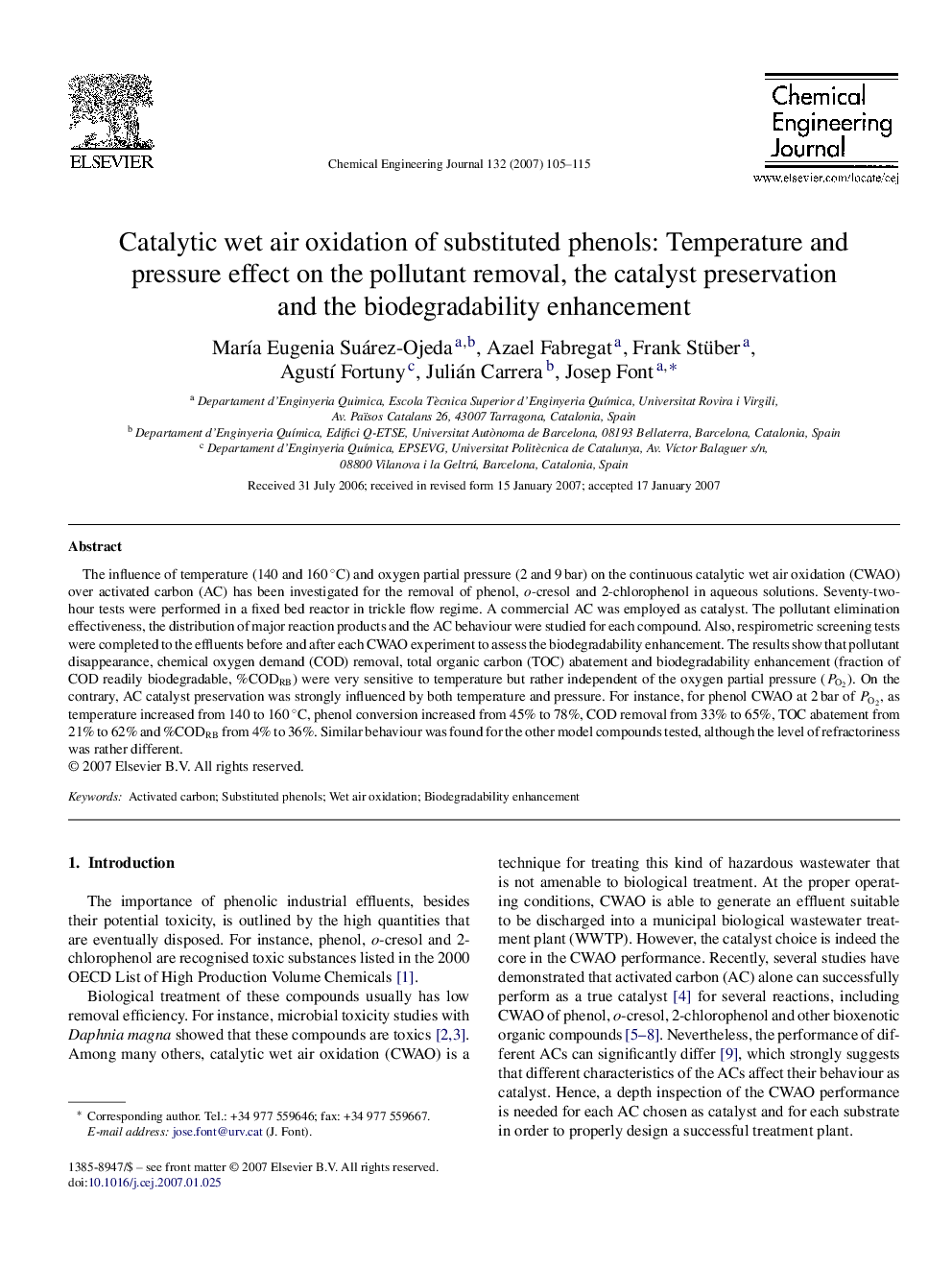| Article ID | Journal | Published Year | Pages | File Type |
|---|---|---|---|---|
| 153765 | Chemical Engineering Journal | 2007 | 11 Pages |
The influence of temperature (140 and 160 °C) and oxygen partial pressure (2 and 9 bar) on the continuous catalytic wet air oxidation (CWAO) over activated carbon (AC) has been investigated for the removal of phenol, o-cresol and 2-chlorophenol in aqueous solutions. Seventy-two-hour tests were performed in a fixed bed reactor in trickle flow regime. A commercial AC was employed as catalyst. The pollutant elimination effectiveness, the distribution of major reaction products and the AC behaviour were studied for each compound. Also, respirometric screening tests were completed to the effluents before and after each CWAO experiment to assess the biodegradability enhancement. The results show that pollutant disappearance, chemical oxygen demand (COD) removal, total organic carbon (TOC) abatement and biodegradability enhancement (fraction of COD readily biodegradable, %CODRB) were very sensitive to temperature but rather independent of the oxygen partial pressure (PO2PO2). On the contrary, AC catalyst preservation was strongly influenced by both temperature and pressure. For instance, for phenol CWAO at 2 bar of PO2PO2, as temperature increased from 140 to 160 °C, phenol conversion increased from 45% to 78%, COD removal from 33% to 65%, TOC abatement from 21% to 62% and %CODRB from 4% to 36%. Similar behaviour was found for the other model compounds tested, although the level of refractoriness was rather different.
